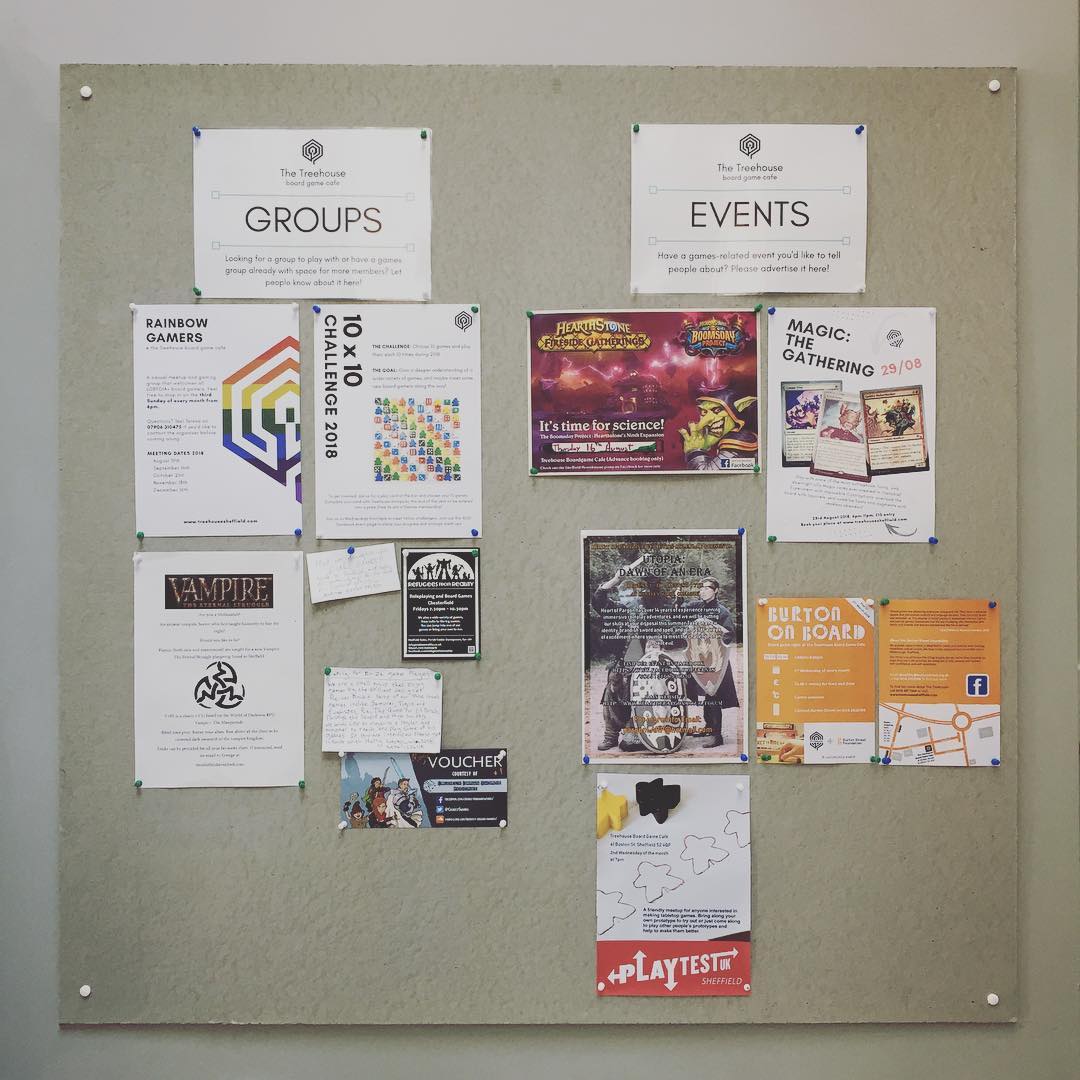After a touching father-son moment, the team sing the praises of Century: Eastern Wonders, interview megagame designer Jon Gracey, and guest game guru (and local astronaut) Joe Bernard brings in the surprisingly sleek Small World.
Links:

After a touching father-son moment, the team sing the praises of Century: Eastern Wonders, interview megagame designer Jon Gracey, and guest game guru (and local astronaut) Joe Bernard brings in the surprisingly sleek Small World.
Links:


Even if I did have magical telekinetic board gaming powers, I wouldn’t know how to use them. Sure, I could cheat at games, cause havoc with components, and shuffle every deck of Dominion at the same time, but I wouldn’t make any friends doing it. And without friends, board gaming isn’t much fun.
Board games are intensely social, almost by definition. Solo games do exist, but they’re still fairly niche, and as standard, games require communication between multiple people in the same room. That isn’t true of all hobbies – some can be done solo (fitness, art) and others can be done online (video games, arguing). And while online adaptations of games and applications like Tabletopia are gaining ground, the vast majority of board gaming is still done in person.
This is, by and large, a good thing. This isn’t about to become a society-is-dying-because-internet post, but it’s undeniably pleasant to treat board gaming as a means of bringing people together face-to-face. This is something that as a hobby it does perhaps uniquely well, and a feeling that it’s tough to replicate online. The big downside to this aspect is that it introduces a prerequisite for participation: having a group to play with.
Maybe you just moved to a new city and you don’t know anyone. Maybe your friends are not the board-gaming type (much as I want to convert everyone I know, I’ve come to accept that some people just… don’t like games). Or perhaps the problem is even worse – you do have gaming friends, but you’re all so busy with other things that it’s impossible to get together to play. This is normally Kevin’s fault. Damn it, Kevin.
At The Treehouse, we’ve thought about this quite a bit. People come in semi-regularly to ask if we have a way to find them some players, and over the last year we’ve tried a few different methods of helping them out.
Before The Treehouse opened, owners Ruth & Andy hosted a monthly board games evening called Across the Board at the Showroom Cinema, for exactly this purpose. Each month would have a theme, from “Go Team!” (cooperative games) to “Art & Design” or my personal favourite, “Crime!”.

After a tour through victory, the team discuss strategy and lasers in Khet, recall their experiences with escape rooms, and guests Ruth and Andy Haigh bring us deep underground in Sub Terra.
Links:

After a PR disaster, the team fall in love with KeyForge, give some tips on the best family games for Christmas, and gamble their docks away in Port Royal.
In a 2 player game, if a player forgets to draw from the stock and tables their first meld (without needing to draw the top discard), would there be a penalty? Or, once noticed could they then draw from the stock?

After a mixup with head office, the team get cozy with Ex Libris, get frugal with a cheap-to-free board game collection, and get positively warlike with 7 Wonders.

After a trip through time, the team carefully balance their views of Tokyo Highway, fail to solve the problem of hype, and discuss the perfectly imperfect Dominion.

After a perfect storm of randomness, the team enthuse about Dice Forge, set hypotheticals for two-player games, and become one another’s Muse.
I have a player that may be later for a start of a game. How can I incorporate them into a session of BSG?
I see two simple ways of doing this:
I think these both amount to the same thing (kind of like adding a character mid-season to the series). But does it cause any difficulties for game play?

After a trip to King’s Crossing, the team brew up a potion of excitement for Quacks of Quedlinburg, relate their favourite moments in narrative gaming, and then get as evangelical as they ever have about a game that isn’t even in the game library.
The Treehouse
Quacks of Quedlinburg on BoardGameGeek